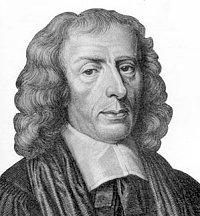Planning worship?
Check out our sister site, ZeteoSearch.org,
for 20+ additional resources related to your search.
- |
User Links
Person Results
George Frideric Handel

1685 - 1759 Person Name: George Frederick Handel (1685-1759) Composer of "CANNONS" in The Oxford Hymn Book George Frideric Handel (b. Halle, Germany, 1685; d. London, England, 1759) became a musician and composer despite objections from his father, who wanted him to become a lawyer. Handel studied music with Zachau, organist at the Halle Cathedral, and became an accomplished violinist and keyboard performer. He traveled and studied in Italy for some time and then settled permanently in England in 1713. Although he wrote a large number of instrumental works, he is known mainly for his Italian operas, oratorios (including Messiah, 1741), various anthems for church and royal festivities, and organ concertos, which he interpolated into his oratorio performances. He composed only three hymn tunes, one of which (GOPSAL) still appears in some modern hymnals. A number of hymnal editors, including Lowell Mason, took themes from some of Handel's oratorios and turned them into hymn tunes; ANTIOCH is one example, long associated with “Joy to the World.”
Bert Polman
George Frideric Handel
Henry More

1614 - 1687 Person Name: Henry More (1614-1687) Author of "God is ascended up on high, alleluia" in The Oxford Hymn Book More, Henry, D.D., was b. at Grantham in 1614, and educated at Eton and Christ's College, Cambridge, where he graduated in 1635, and became a Fellow of his College in 1639. He declined various offers of high preferment. He spent his time mainly in the study of philosophy and as a private tutor. He died in 1687. In 1640 he published his Psychozoia, or the First Part of the Sony of the Soul, containing a Christiano-Platonic display of Life. In 1647 this was republished with additions as Philosophical Poems. His poems, collected and edited by Dr. Grosart, are included in the Chertsey Worthies Library. His "Philosopher's Devotion," beginning "Sing aloud! His praise rehearse," is given in Macdonald's England's Antiphon. His Memoirs were published in 1710. His Divine Dialogues with Divine Hymns added thereto were published in 1668. From a hymn in this work, beginning "When Christ His body up had borne," J. Wesley took 10 stanzas and moulded them into two hymns, which lie included in the Wesleyan Hymn Book, 1780, as "Father, if justly still we claim" (The Holy Spirit desired), No. 444; and "On all the earth Thy Spirit shower," No. 445. These hymns are in common use in Great Britain and America. [W. T. Brooke]
--John Julian, Dictionary of Hymnology (1907)
Henry More


 My Starred Hymns
My Starred Hymns


